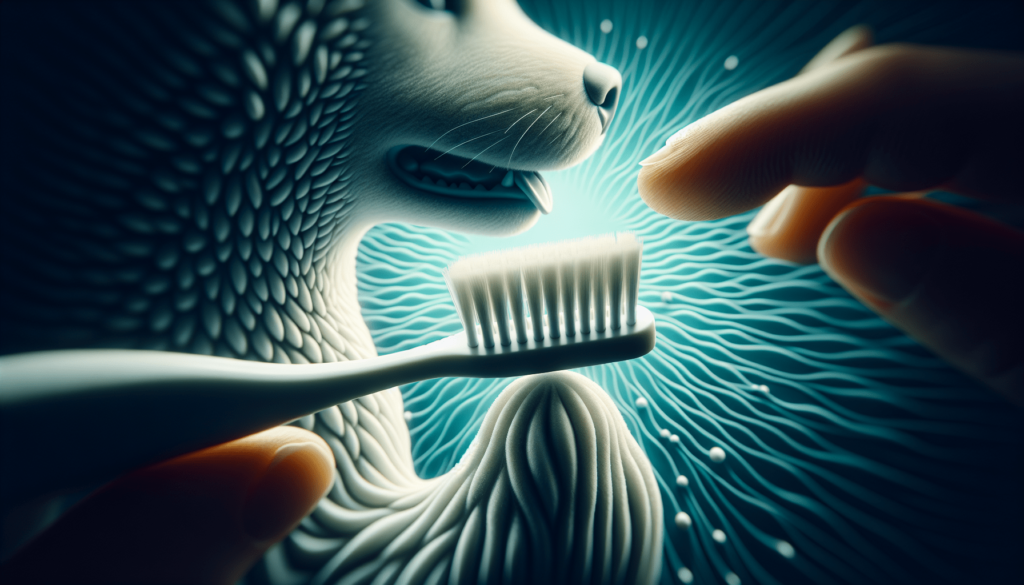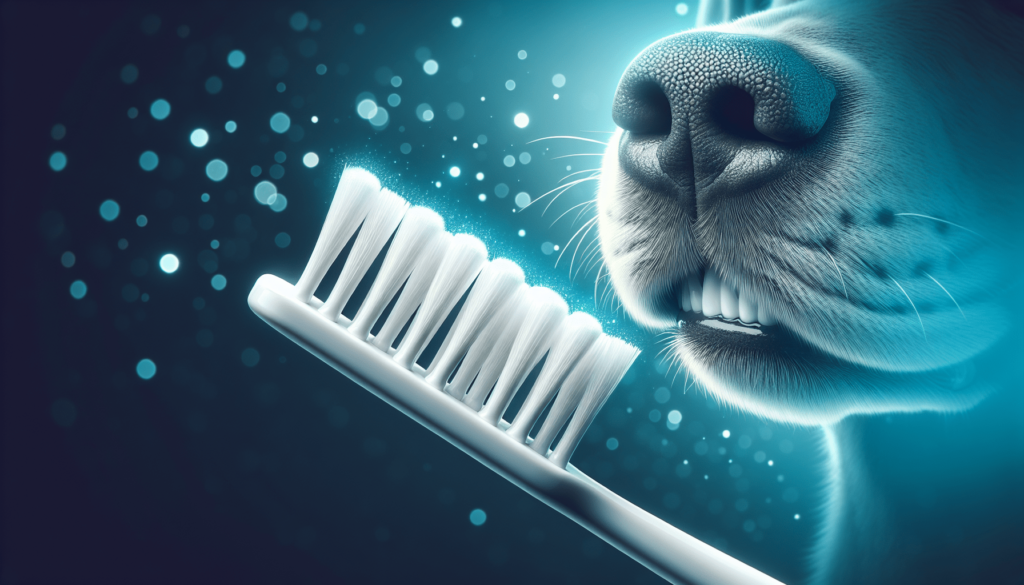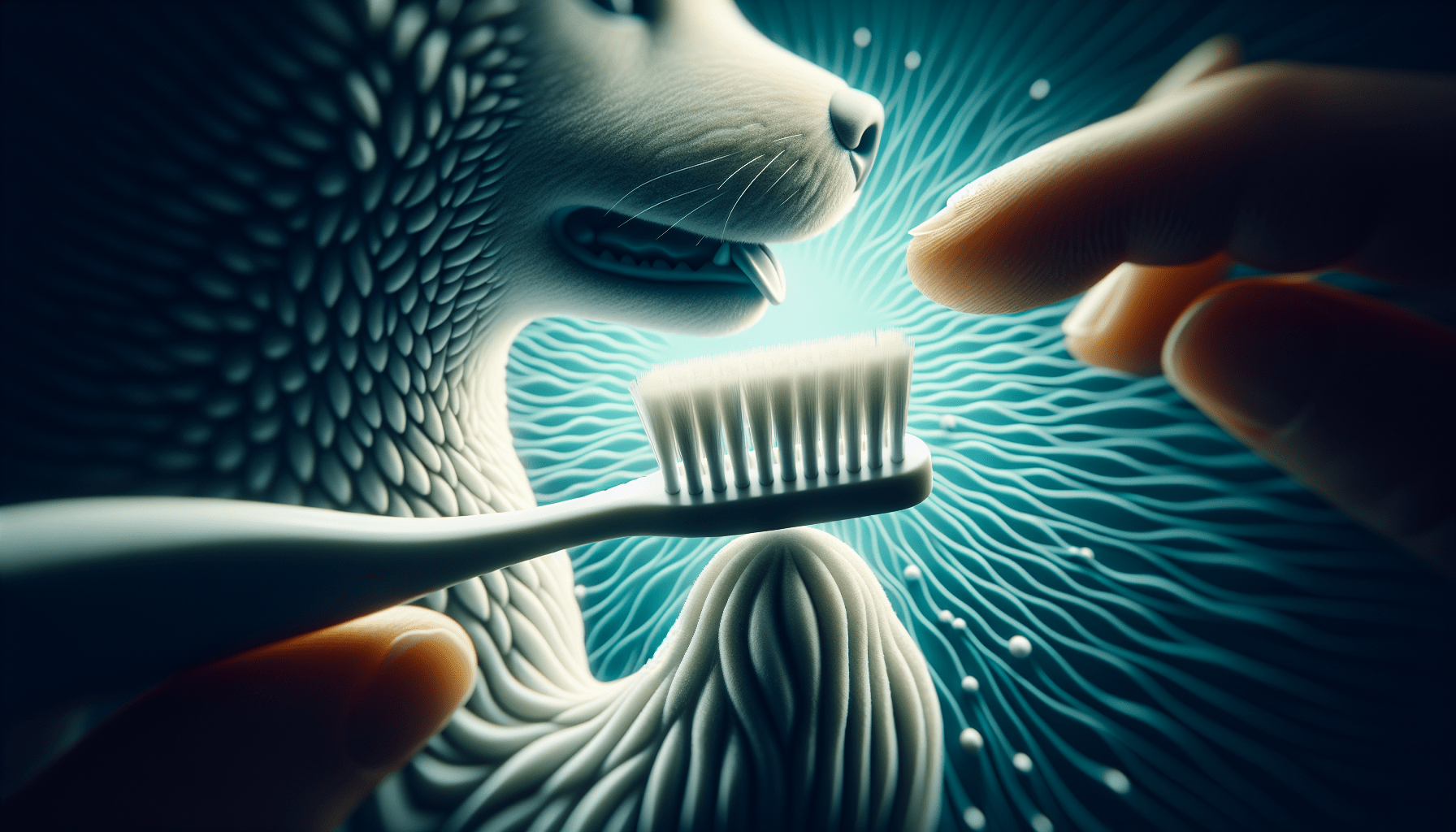Taking care of your dog’s teeth is essential for their overall health and well-being. Just like humans, dogs can develop dental issues such as gum disease, tooth decay, and bad breath. Regular dental care for dogs involves brushing their teeth, providing them with dental treats and toys, and scheduling regular vet check-ups. By making dental care a priority, you can help your furry friend maintain a healthy mouth and prevent potential health problems in the future. So, let’s explore the significance of regular dental care for your beloved canine companion.
Prevention of Dental Diseases
Taking care of your dog’s dental health is extremely important for their overall well-being. Dental diseases such as periodontal disease, gingivitis, and tooth decay can lead to pain, discomfort, and other health complications. By implementing preventive measures, you can ensure that your furry friend enjoys a happy and healthy life free from these dental issues.
Periodontal Disease
Periodontal disease is a common dental problem in dogs, affecting the gums and surrounding tissues. It occurs when plaque and tartar build-up on the teeth, leading to inflammation and infection. If left untreated, periodontal disease can progress and affect the tooth’s supporting structures, resulting in tooth loss. Regular dental care can help prevent periodontal disease and its adverse effects on your dog’s oral health.
Gingivitis
Gingivitis is the inflammation of the gums and is often caused by poor oral hygiene. It typically manifests as red, swollen gums that may bleed easily. If left untreated, gingivitis can progress to periodontal disease, leading to more serious oral health problems. By practicing regular dental care, you can effectively prevent the development and progression of gingivitis in your dog.
Tooth Decay
Tooth decay, also known as dental caries or cavities, occurs when harmful bacteria in the mouth produce acids that erode the enamel and dentin of the teeth. This can lead to pain, infections, and even tooth loss if not addressed in time. Regular dental care, including brushing your dog’s teeth and providing appropriate dental treats, can significantly reduce the risk of tooth decay and its associated complications.
Overall Health Benefits
Maintaining your dog’s dental health goes beyond just preventing oral problems – it also has a positive impact on their overall well-being.
Prevention of Organ Damage
Poor dental hygiene can lead to the spread of harmful bacteria from the mouth to other organs through the bloodstream. This can potentially cause organ damage and compromise your dog’s overall health. By practicing regular dental care, you can reduce the risk of bacterial infections and protect your dog’s vital organs from potential harm.
Reduction of Bad Breath
One of the most noticeable benefits of good dental care in dogs is the reduction of bad breath, also known as halitosis. Bad breath is often a result of bacterial buildup in the mouth, which can be addressed through regular teeth brushing, professional cleanings, and the use of dental chews. By keeping your dog’s breath fresh, you can enjoy their company without the unpleasant odor.
Improvement in Appetite
Dental diseases can cause pain and discomfort, making it difficult for your dog to eat properly. If your furry friend shows a decreased appetite or difficulty chewing, it could be a sign of underlying dental problems. By maintaining good dental hygiene, you can ensure that your dog enjoys their meals without any discomfort, promoting their overall health and nutrition.

Enhancement of Quality of Life
A healthy mouth translates to a happier and more comfortable life for your beloved pet. Good dental care offers several benefits that contribute to their overall quality of life.
Pain Relief
Dental diseases can cause significant pain and discomfort, affecting your dog’s ability to eat, play, and even sleep. By implementing preventive measures and addressing dental issues promptly, you can provide your dog with much-needed pain relief, enhancing their quality of life.
Improved Chewing Ability
A strong and healthy set of teeth allows your dog to chew their food properly, aiding digestion and nutrient absorption. In addition, chewing also serves as a natural behavior that provides mental stimulation and helps keep their teeth clean. By taking care of your dog’s dental health, you can ensure they have a functional and pain-free chewing ability.
Better Overall Well-being
When your dog is free from oral pain and discomfort, their overall well-being is significantly improved. They can play, interact, and enjoy their daily activities without any hindrance. By prioritizing dental care, you are promoting not only their oral health but also their overall happiness and vitality.
Preventive Measures
Preventing dental diseases in dogs involves a combination of regular at-home care and professional dental cleanings.
Regular Teeth Brushing
Brushing your dog’s teeth is a fundamental component of their dental care routine. Using a dog-specific toothbrush and toothpaste, gently brush their teeth in a circular motion. Aim for daily brushing, but even a few times a week can make a significant difference in maintaining their dental health. Start gradually to help your dog acclimate to the process, and reward them with praise and treats for their cooperation.
Professional Dental Cleanings
While at-home brushing is essential, professional dental cleanings by a veterinarian are also crucial for comprehensive dental care. During these cleanings, tartar and plaque are removed from above and below the gum line, ensuring a thorough cleaning. Additionally, your veterinarian can examine your dog’s mouth for any underlying issues and provide appropriate treatment if necessary.
Use of Dental Chews and Toys
Dental chews and toys can be a beneficial addition to your dog’s dental care routine. These specially designed products help promote chewing and saliva production, which aid in keeping the teeth clean. The chewing action also helps massage the gums and remove plaque and tartar buildup. Be sure to choose dental chews and toys that are appropriate for your dog’s size and age, and consult your veterinarian for recommendations.

Detection of Systemic Diseases
Regular dental care can not only prevent oral problems but also serve as a means of detecting early signs of systemic diseases.
Gum Inflammation as an Indicator
Inflamed or bleeding gums can be a sign of systemic diseases such as diabetes, kidney problems, or immune system disorders. By regularly examining your dog’s gums during dental care, you may notice changes that could indicate the presence of underlying health issues. Consult your veterinarian if you observe any unusual signs or symptoms.
Periodontitis Linked to Heart Disease
Periodontitis, if left untreated, can contribute to the development of heart disease in dogs. The inflammation in the mouth can lead to bacterial entry into the bloodstream, potentially damaging the heart valves and causing cardiovascular problems. Regular dental care can help minimize the risk of periodontitis and its potential connection to heart disease.
Oral Tumors as Early Warning Signs
During routine dental care, your veterinarian may identify oral tumors or abnormal masses in your dog’s mouth. Early detection of these growths allows for prompt evaluation and treatment, potentially preventing further complications. Regular dental exams can help identify these warning signs and ensure the early intervention necessary for your dog’s well-being.
Prevention of Future Complications
Maintaining your dog’s dental health through regular care and preventive measures can prevent future complications that may require more invasive treatments.
Root Canal Treatments
If dental infections progress to the point where the tooth’s pulp is affected, root canal treatment may be required to save the tooth. By practicing regular dental care, you can minimize the risk of bacterial infections that necessitate such procedures. This helps your dog avoid the discomfort and expense associated with root canal treatments.
Extractions
Severe dental diseases often require tooth extractions to eliminate pain, infection, and further spread of oral issues. By prioritizing preventive measures, you can reduce the likelihood of your dog needing extractions and the associated recovery period. Maintaining their dental health ensures their teeth remain functional and pain-free.
Avoidance of Costly Procedures
Preventive dental care is typically more cost-effective than treating advanced dental diseases. By investing time and effort into regular dental care, you can potentially prevent the need for costly treatments in the future. Good dental hygiene can save you from financial burdens while ensuring your dog’s optimal health.
Training and Socialization Benefits
Incorporating dental care into your dog’s routine can have positive effects on their behavior and interactions with you and others.
Positive Reinforcement during Dental Care
Training your dog to accept dental care can strengthen your bond and improve their behavior during dental procedures. By using positive reinforcement techniques, such as rewards and praise, you can associate dental care with a positive experience. This helps your dog feel more comfortable and cooperative during future dental appointments.
Improved Behavior during Vet Visits
Regular dental care helps familiarize your dog with the veterinary clinic environment. Consistent exposure to dental exams and cleanings can positively impact their overall behavior during vet visits. Your dog will become accustomed to the handling and examination processes, making future veterinary care less stressful for both of you.
Better Interactions with Other Dogs
Maintaining good dental hygiene ensures that your dog has fresh breath, which enhances their social interactions with other dogs. Bad breath can be off-putting to other dogs and potentially create social barriers. By prioritizing dental care, you can help your dog enjoy positive interactions and develop strong social connections within their canine community.
Educating Pet Owners
As a responsible pet owner, it is crucial to educate yourself about dental hygiene best practices and the importance of regular dental care for dogs.
Awareness of Dental Hygiene Importance
Understanding the significance of dental hygiene allows you to prioritize your dog’s oral health. Educate yourself about the risks of dental diseases and the benefits of preventive care. By being aware of the potential consequences of neglecting dental care, you can take proactive steps to maintain your dog’s dental health.
Understanding Dental Care Techniques
Learning proper dental care techniques empowers you to effectively care for your dog’s teeth at home. Seek guidance from your veterinarian on the correct brushing technique, toothpaste selection, and frequency of dental care. By acquiring the necessary knowledge and skills, you can confidently provide your dog with the dental care they need.
Recognizing Signs of Dental Problems
Being able to recognize the signs of dental problems enables you to identify issues early and seek timely treatment. Regularly inspect your dog’s mouth for signs of redness, swelling, bleeding, or foul odor. Notice any changes in their eating patterns, behavior, or pawing at the mouth. If you observe any concerning signs, consult your veterinarian for examination and guidance.
Lifespan Extension
Prioritizing your dog’s dental health can contribute to an extended lifespan and enhanced quality of life in their senior years.
Reduced Risk of Lifelong Dental Issues
By implementing preventive measures from an early age, you can minimize the risk of dental issues persisting throughout your dog’s life. Good oral hygiene practices, combined with regular dental check-ups, set the foundation for a healthier mouth as your dog grows older. This lowers the likelihood of chronic dental problems that can impact their overall health and lifespan.
Overall Health Improvement
Maintaining good dental health positively impacts your dog’s overall health. By preventing oral infections and bacteria from spreading to other organs, you reduce the risk of systemic diseases. When their body is free from constant oral inflammation, their immune system can better focus on fighting other potential health threats. Prioritizing dental care contributes to their general well-being and longevity.
Improved Quality of Life in Senior Dogs
As dogs age, their dental health can decline, leading to discomfort and reduced quality of life. By consistently practicing dental care throughout their lives, you can help minimize dental issues in their senior years. This allows your dog to enjoy their golden years without the hindrance of oral pain, enabling them to maintain an active and comfortable lifestyle.
Veterinary Collaboration
Collaborating with your veterinarian is integral to ensuring your dog’s dental health and maintaining a comprehensive dental care plan.
Importance of Regular Dental Exams
Regular dental examinations by a veterinarian are essential in assessing your dog’s oral health. Schedule routine check-ups to have your dog’s teeth and gums thoroughly examined for any signs of dental problems. Your vet can provide professional recommendations and guidance tailored to your dog’s specific needs, ensuring their dental health is maintained.
Developing a Dental Care Plan
Your veterinarian can work with you to develop a personalized dental care plan for your dog. This plan may include at-home dental care routines, regular professional cleanings, and additional preventive measures based on your dog’s breed, age, and overall health. By collaborating with your vet, you can establish a comprehensive dental care plan that addresses your dog’s specific needs.
Maintenance and Follow-up
Regular communication with your veterinarian is crucial for the ongoing maintenance of your dog’s dental health. Follow their recommendations for at-home dental care and schedule routine check-ups and cleanings as advised. By staying proactive and consistent with your dog’s dental care, you can ensure their optimal dental health and promptly address any emerging issues.
In conclusion, regular dental care plays a vital role in keeping your dog healthy, happy, and free from dental diseases. By practicing preventive measures, detecting systemic diseases early, and providing comprehensive dental care, you can significantly improve your dog’s quality of life and extend their lifespan. Collaborate with your veterinarian, educate yourself about dental hygiene, and prioritize your dog’s dental health to ensure they enjoy a lifetime of healthy smiles.

